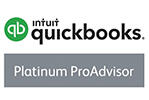Stamp duty land tax (SDLT) relief in Freeports: first guidance published
Budget 2021 included the announcement that several new Freeport sites would be designated, with a number of tax reliefs available to businesses operating within them. For a business looking to move into a Freeport site, the welcome news is that there will be relief from SDLT. HMRC has now published some initial guidance - what do businesses need to know?

One feature of a Freeport site is a relaxation of customs rules, allowing goods to move into and out of the site like a form of hub. However, there are other reliefs - including from SDLT. HMRC has now published guidance on this relief. In order to qualify, a business must buy land or buildings in a designated site that will be used in a qualifying way. The SDLT relief also applies to leased land or buildings. To be using the land or buildings on a qualifying way, it must be used:
- in a commercial trade or profession;
- for development or redevelopment for resale (but not as residential property);
- for letting to another person who pays rent, and who does not use the building as residential property.
Where at least 90% of the purchase prices for qualifying land or buildings, relief from SDLT is available in full. If less than 90% of the purchase prices for qualifying land or buildings, relief is available on the portion of the price that relates to the qualifying part, as long as this is at least 10% of the total price. The claim must be made on a land transaction return within 14 days of the transaction, and all claims must be made by 14 October 2027 at the latest. HMRC's guidance contains further information, including several helpful examples.
Related Topics
-
Get ready for Making Tax Digital for Income Tax
If you’re one of the (un)lucky individuals who need to join Making Tax Digital for Income Tax (MTD IT) from 6 April 2026, you probably know that this involves submitting regular, digital records to HMRC. But what do you need to do to prepare?
-
CT61
-
Repayment thresholds for student finance confirmed
Repaying student finance can seem complicated, with a number of different plan types each having different repayment thresholds. The thresholds for the forthcoming year have just been confirmed. What’s the full story?



 This website uses both its own and third-party cookies to analyze our services and navigation on our website in order to improve its contents (analytical purposes: measure visits and sources of web traffic). The legal basis is the consent of the user, except in the case of basic cookies, which are essential to navigate this website.
This website uses both its own and third-party cookies to analyze our services and navigation on our website in order to improve its contents (analytical purposes: measure visits and sources of web traffic). The legal basis is the consent of the user, except in the case of basic cookies, which are essential to navigate this website.